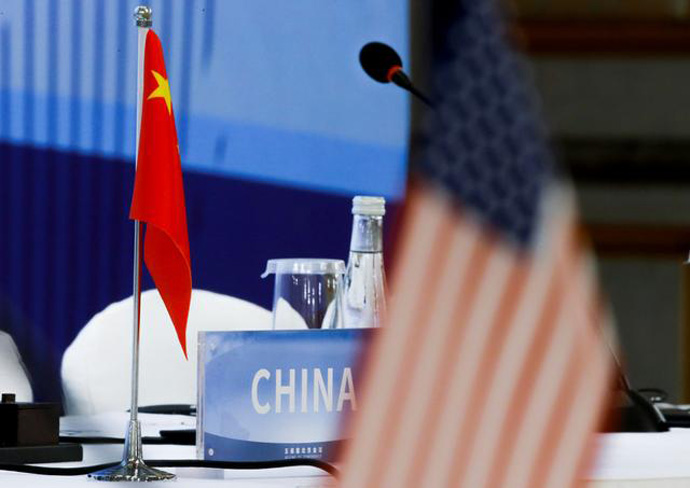
An Gang, Adjunct Fellow, Center for International Security and Strategy, Tsinghua University
Apr 08, 2021
The deterioration of China-U.S. relations has not ended, and a turnaround is unlikely. Given the intense frictions of recent years, both countries have built up a fixed mindset about diplomatic strategy that has been incorporated in their domestic politics. Superb diplomatic skills will be needed to avert confrontation.
Cui Liru, Former President, China Institutes of Contemporary International Relations
Mar 30, 2021
Reflecting on the recent meeting in Alaska between China and the United States, one might be tempted to worry about the tough U.S. posturing. Closer examination, however, suggests it was just political theater staged for the media and domestic observers.
Jin Liangxiang, Senior Research Fellow, Shanghai Institute of Int'l Studies
Mar 30, 2021
The new U.S. president will want to invest hard strategic resources in the Asia-Pacific region, which will require the use of diplomatic and economic measures to maintain its strategic presence in the Middle East. The arrangement looks reasonable, but it is doomed to fail.
Wu Zurong, Research Fellow, China Foundation for Int'l Studies
Mar 24, 2021
Regrettably, Joe Biden, the new president of the United States, has failed to pick up on changes in global realities in which American values do not fit for many other countries. The U.S. should work on putting its own house in order and meanwhile mind its own business.
Dan Steinbock, Founder, Difference Group
Mar 22, 2021
In contrast to the hopes of moderate bipartisan voices, Blinken's China vision builds on the Trump-Pompeo unipolarity, at the expense of U.S. business and American people. The semiconductor debacle is a prelude to the future.
Han Liqun, Researcher, China Institutes of Contemporary International Relations
Mar 11, 2021
The new U.S. president is relying is his political memory as he approaches relations with Europe. But the world no longer matches the memories. He will face significant new hurdles. Donald Trump made structural changes that will not be easy to undo.
Wang Zhen, Professor and Deputy Director, Institute for International Relation Studies, Shanghai Academy of Social Sciences
Mar 11, 2021
China bashing has become a new form of political correctness in the United States. Despite Biden’s rhetoric, it's not clear that he can do away with Trump’s toxic legacy and rebuild the political and social basis of China-U.S. relations.
Wang Zhen, Professor and Deputy Director, Institute for International Relation Studies, Shanghai Academy of Social Sciences
Mar 10, 2021
The coronavirus crisis will eventually be a thing of the past, but in the post-COVID era, serious questions remain. What kind of human rights and what international moral standard serves humanity best?
Zhang Yun, Professor, School of International Relations, Nanjing University
Mar 02, 2021
International relations should serve domestic economic development and improve the lives of the American people, President Joe Biden said, adding that the U.S. intends to bolster the national interest through diplomatic good offices rather than military means.
Zoe Jordan, Yenching Scholar at Peking University
Feb 24, 2021
In India, the United States finds a South Asian partner that shares grievances with China. However, by viewing India only on the plane of conflict with China, the U.S. lacks a long-term path toward building a productive relationship with the world’s second most populous nation.
Back to Top

- China-US Focus builds trust and understanding between the U.S. and China through open dialogue among thought leaders.
- Our Offerings
- Topics
- Videos
- Podcasts
- Columnists
- Research Reports
- Focus Digest
- Stay Connected
-
Thanks for signing up!
- Get the latest stories from China-US Focus weekly.